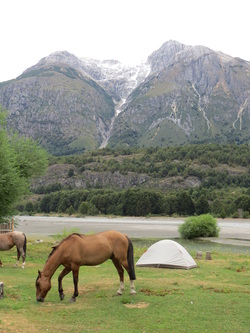
An interesting quirk arising from the remoteness that we sought and found on the Carretera Austral; few banks & few ATMs, even fewer that would accept VISA. Having not accounted for this prior to embarking, we found ourselves low on cash and hence hitching the next 300-odd kilometers. So early on the rainy Monday after the festival we could be found on the only road out of town with our thumbs stuck out. After maybe two hours we struck gold! And to boot it was in the cab of a truck, better than out in the back with the dog in the rain – luxury! It came to pass that our ride, Nelson, had a campsite on his estancia abut halfway to our destination. A quick check of the schedule – open – and we had arrived at our home for the night. The estancia had been in his wife’s family for three generations and her great-grandparents were the original settlers on that land. They were situated on the Nadis Rio surrounded by glacier-coated peaks. The crazy thing is that after all the amazing vistas we had seen we found this place pleasant, but not breathtaking – boy we are spoiled!
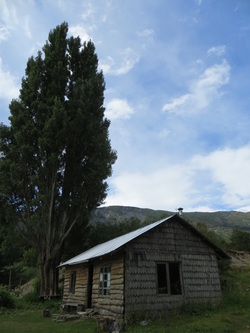
The original homestead
During our stay we were fortunate to gain a unique insight into the resourcefulness of the locals that lends itself to their resilience in a harsh environment. As they had just slaughtered two lambs for an Asado (BBQ) that evening we were able to witness them utilizing every part of the animal; the sheep-skin drying in the shed, the heart, lungs, etc smoking over the fire and the rest roasting and dripping its fat and amazing smell of campfire and roasting meat. The pioneering spirit is very much alive here. And I have to admit it has been difficult at times but I have really gained a much deeper knowledge and respect for how and where the meat I eat comes from. We immensely enjoyed the corderro (lamb) that Nelson and Marisol shared with us, amazing Chilean hospitality. The following day we journeyed through adjacent estancias to see the confluence of the Baker and Nadis rivers. Bek spend a bit of time practicing her Spanish with their 15 year old daughter who industriously spends her free time making jewelry and knitted goods. Additionally Bek bought a headband the daughter had made using wool they had spun from their own sheep and dyed with the berries from the Calafate bushes on their property. Talk about getting back to the land, they had one solar panel that generated their electricity, their water was from the stream that ran through their yard and their food came from their kitchen garden and their cattle. In the winter Marisol and their daughter move up to town so the daughter can go to school and Nelson spends the long winter days alone at the Enstancia. Three hours of sunshine a day and the rest darkness and snow, I am truly humbled by the fortitude, industriousness and resourcefulness of the people who live in such an intense and remote part of the world.
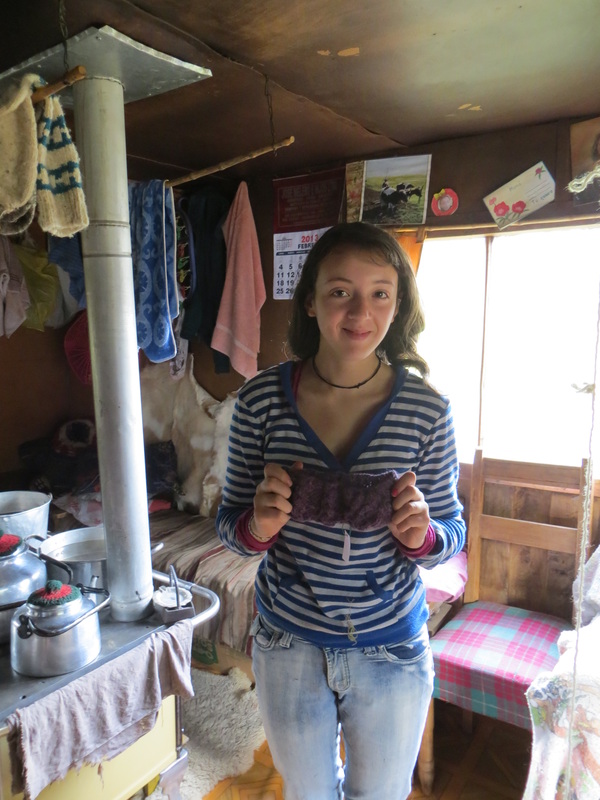
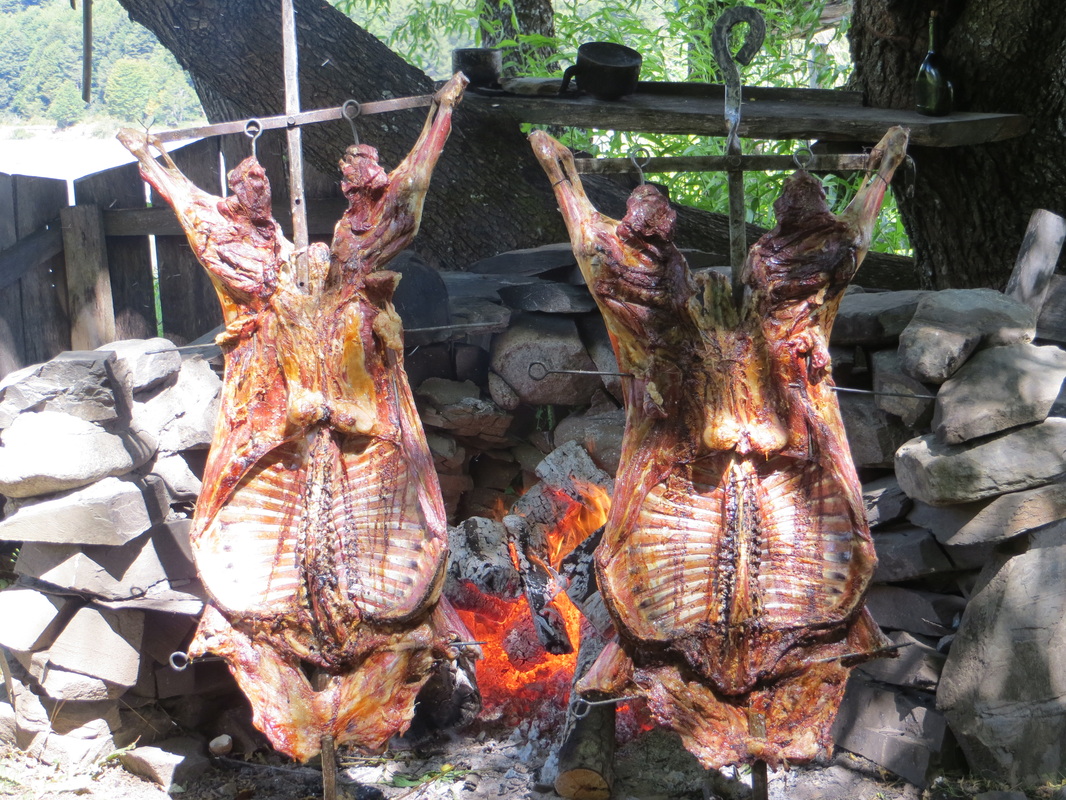
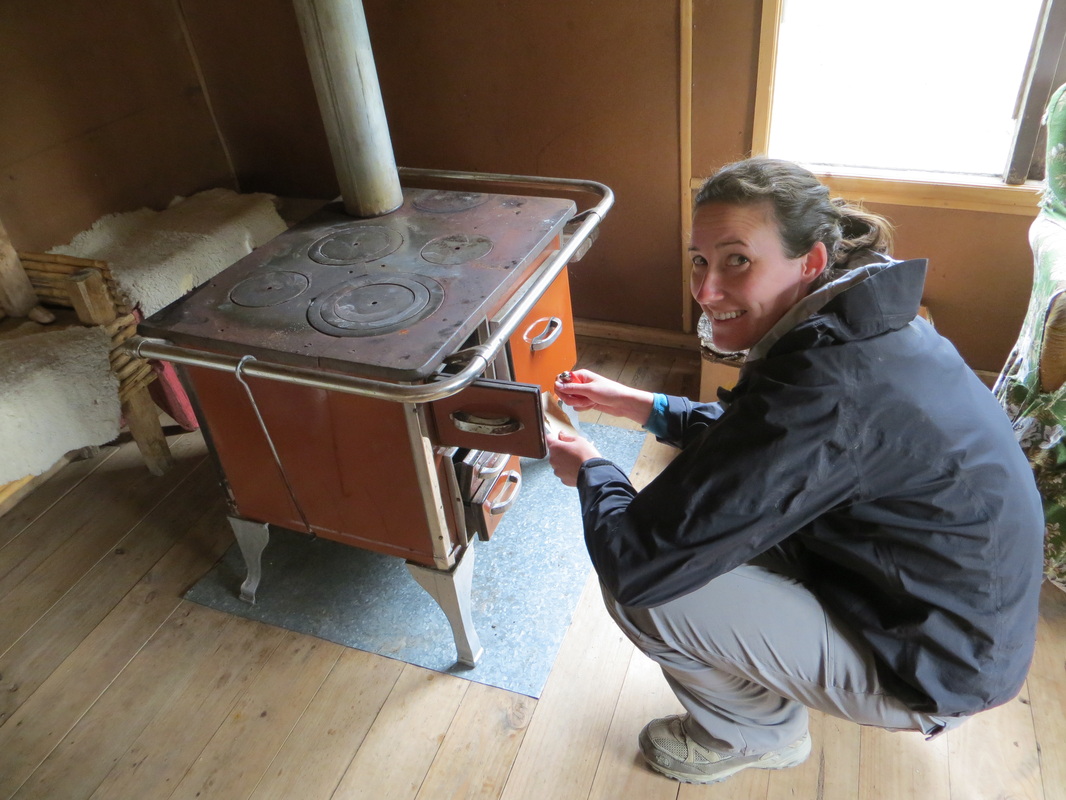
 RSS Feed
RSS Feed